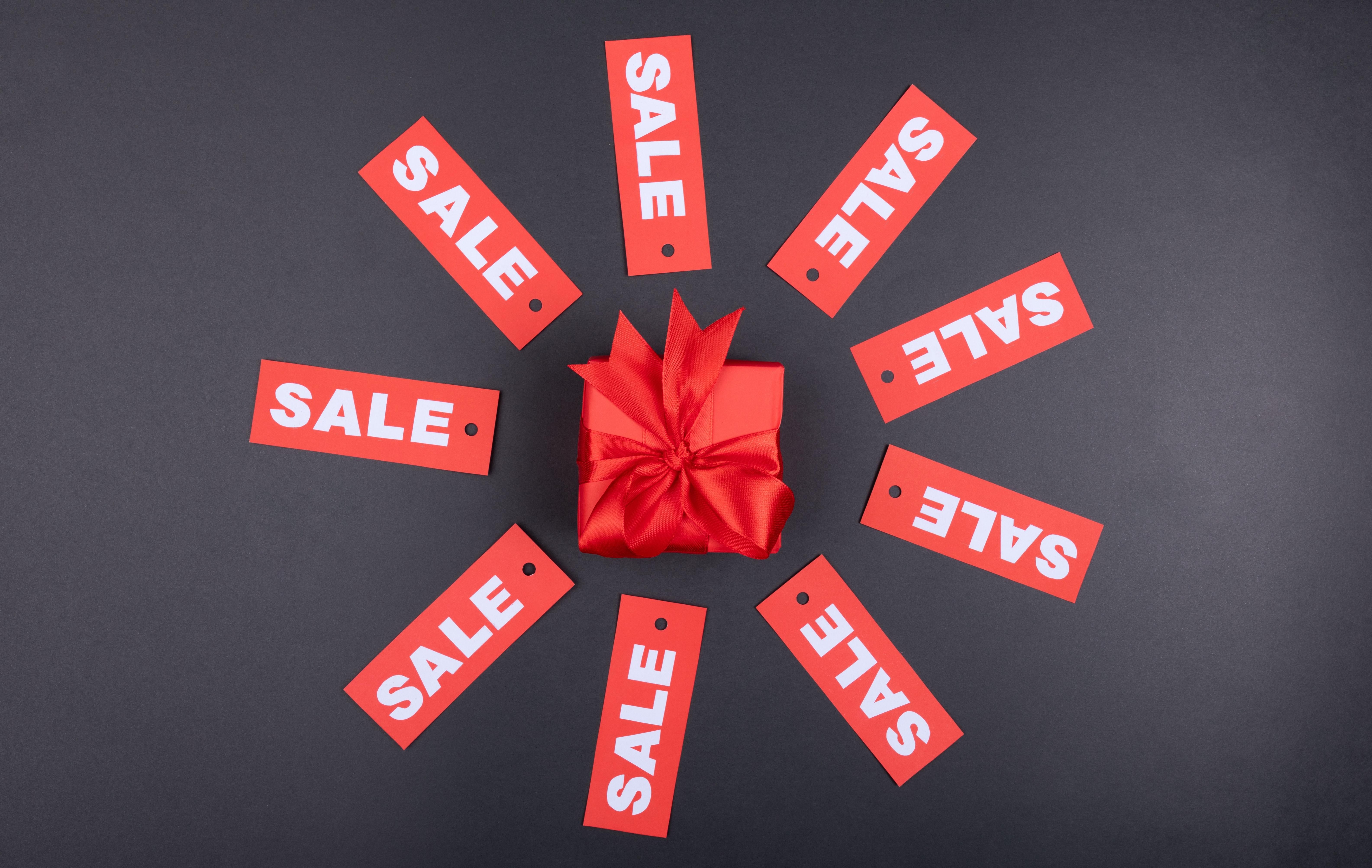Brands and retailers have been preparing for months. Now it’s time to let the offers fly.
Thanksgiving weekend brings the biggest shopping days of the year, as the period from Black Friday to Cyber Monday provides the space and massive discounts for people to cross gifts off their lists for others, and perhaps buy themselves something they like in the meantime.
This year, a general uncertainty that has characterized the last two years remains, but it’s of a different flavor than the anxiety over supply chain delays and the pandemic The interplay of inflation, a desire to get back out and shop and an expected heavily promotional environment has made forecasting difficult. However, retailers reported this week on earnings calls that they have inventory in place as supply chain issues resolve and they make progress on excess stock.
Even though retailers like Amazon, Walmart and Target already held holiday kickoff events, brands are still eying the period from Black Friday-Cyber Monday as their largest opportunities of the year.
With campaigns moving into place, it’s time to take a last look at consumer trends. Here's the outlook we culled from data released this week as we head into the Cyber Five:
Deloitte: Inflation won’t dampen spirits
Deloitte believes inflation concerns will continue to be present, but won’t hold consumers back. The firm offered the following forecast for Black Friday-Cyber Monday, based on a survey of 1,200 consumers from Oct. 19-28.
- Consumers will spend an average of $500 during Black Friday and Cyber Monday (BFCM) events, up 12% from 2021, outpacing inflation. Spending will increase across income groups.
- Shoppers will spend half of their holiday budgets over BFCM.
- Eight in 10 people plan to shop during BFCM, as opposed to 71% in 2021. This is closer to the pre-pandemic level of 79% in 2019.
Breaking out the events individually, shopping activity is expected to increase on both days. Participation in Black Friday is expected to tick up to 64%, while Cyber Monday participation will rise to 56%. Black Friday shoppers are expected to spend $205 on average, up from $190 in 2021, while Cyber Monday shoppers are expected to spend $218 on average, up from $175 last year.
"While inflation continues to impact consumers at every turn, they are unwilling to let it dampen the holiday spirit,” said Nick Handrinos, vice chair, Deloitte Consulting LLP, and U.S. retail, wholesale and distribution and consumer products leader, in a statement. “Participation in the holiday weekend promotions and spending are expected to increase this year, as consumers are willing to do whatever it takes to celebrate the season, including leveraging payment options to purchase gifts. Retailers who work to build consumer loyalty during this challenging time can be well positioned into the new year."
While the days bring distinct visions of malls and Amazon boxes, respectively, activity is expected to cross both online and in-store shopping throughout the weekend. This year, Deloitte found that the share of consumers that prefer ecommerce for these events remained flat at 54%, while mass merchants and department stores both gained share amid the return to in-store shopping. At the same time, 69% of consumers expect comparable deals between online and in-store retailers throughout the holiday weekend, as opposed to only Cyber Monday for online or Black Friday for in-store.
“While Black Friday deals have traditionally been in-store, the event is becoming more channel-agnostic, with retailers offering comparable deals both in-store and online,” Rod Sides, global leader of Deloitte Insights and vice chair, U.S. retail, wholesale and distribution and consumer products, in a statement. “Retailers who can differentiate themselves through return policies, warranties and other perks can entice consumers and result in a successful holiday season."

A chart showing consumer payment options. (Courtesy of Deloitte)
Adobe: BFCM ecommerce to rise slightly
When it comes to ecommerce alone, Adobe Analytics expects the five days from Thanksgiving to Cyber Monday to generate $34.8 billion in online spend, up 2.8% year-over-year. That will account for 16.3% of the spend for the full November-December 2022 holiday season. Individually:
- Black Friday is expected to bring in $9 billion in ecommerce spend, up 1% year-over-year.
- Cyber Monday is expected to bring in $11.2 billion, up 5.1% annually.
There are signs that consumer spending continues to hold up. For the first three weeks of November, consumers spent $64.59 billion online, Adobe reports. While that was essentially flat when compared to 2021, it shows that a willingness to spend remains, despite inflation.
“We are beginning to see the impact of earlier holiday deals, as retailers contend with oversupply and a softening spending environment,” said Vivek Pandya, lead analyst, Adobe Digital Insights, in a statement. “Ecommerce has remained resilient thus far per Adobe Analytics, a strong start to the season as we look towards Cyber Monday, which is expected to set new records for online shopping.”
In the push and pull between inflation and consumer spending, deals are expected to be a deciding factor. While discounts are a staple of BFCM, retailers expect this year to bring particularly big price breaks from brands aiming to entice consumers who are already seeking to save money.
“Although inflation and supply chain challenges will impact spend this holiday shopping season, we still predict steady growth in online shopping,” said Alex McCord, CEO of Enterprise Execution at Ascential Digital Commerce. “We expect Amazon’s gross merchandise value this holiday season to increase 9%-10% year-over-year. However, we expect to see more promotional activity and are already seeing a shift to lower average selling price items. Deep discounts may be particularly effective in driving conversions this year as consumers face inflationary pressure.”
Strong Q3 earnings bring dose of cheer
A round of retail earnings reports arrived this week to deliver the holiday outlook straight from industry leaders who observe consumer behavior firsthand.
Nordstrom CEO Erik Nordstrom encapsulated the up-and-down nature of the times, saying that sales for the department store retailer were softer in late October and early November, before bouncing back in recent weeks.
“We believe that unseasonably warm temperatures in certain geographies contributed to the decelerating trends, along with delayed holiday shopping,” said Nordstrom Chief Accounting Officer Michael Maher. “As weather normalized and we get closer to the holidays, we've seen sales trends improve and gifting activity accelerate.”
Even though a certain amount of pandemic-level uncertainty remains in the air, Best Buy CEO Corie Barry expects that the cadence of the season will resemble pre-pandemic times. So while retailers are gearing up for a fast start with BFCM, they are also eying a strong finish.
“We expect shopping patterns will look more similar to historical holiday periods than what we have seen in the last two years,” Barrie said. “Specifically, we expect there will be more customer shopping activity concentrated on Black Friday week, Cyber Monday, and the two weeks leading up to December 25. Our results so far in October and the first two weeks of November have come in largely as expected and support this view thus far.”
The consumer electronics retailer was among a host of earnings reports that brought cheer this week. Best Buy had better than expected results for the quarter, and raised its outlook for the full year as a result. Dick’s Sporting Goods raised its outlook for the quarter after comparable store sales growth of 6.5% for the quarter. Urban Outfitters, which also owns Anthropologie and Free People, brought in record sales, while American Eagle Outfitters beat expectations with help from its Aerie brand and the logistics service Quiet Platforms.
It provided a dose of optimism in the final build-up to Black Friday, leading to hopes that the return to a more normal calendar will unleash pent-up demand.
“We believe that the consumer is quite aware of the fact that there's plenty of inventory out there, and what they're doing is waiting for big promotional events that normally occur on Black Friday and Cyber Monday in order to make their purchases,” said Urban Outfitters CEO Richard Hayne. “To support that, we see record amounts of product being put in carts, probably waiting for this coming Friday and next Monday.”
Now, the job for brands and retailers is to do all they can to get those items to convert.
Heading into the holiday, it may be best for brands and retailers to watch what shoppers do, and not what they say. Consumer sentiment was down to a five-month low to end November, despite ticking up slightly from a glum reading to start the month, the University of Michigan reported. Alongside a convergence of concerns over high interest rates and inflation, a particular change was detected in buying conditions for durables, or goods that are designed to last three years or more, which fell 19%.
“Headwinds to consumer strength have started to emerge. Strong incomes have thus far helped consumers, particularly lower-wage workers, cope with high inflation,” said University of Michigan Survey of Consumers Director Joanne Hsu said. “However, their perceptions of weakening labor markets could make them pull back their spending in the future."
In the end, retailers hope the arrival of the holidays will provide people with a lift.
"Now more than ever, our customers are looking to bring joy back into their holiday celebration," Best Buy's Barry said.












